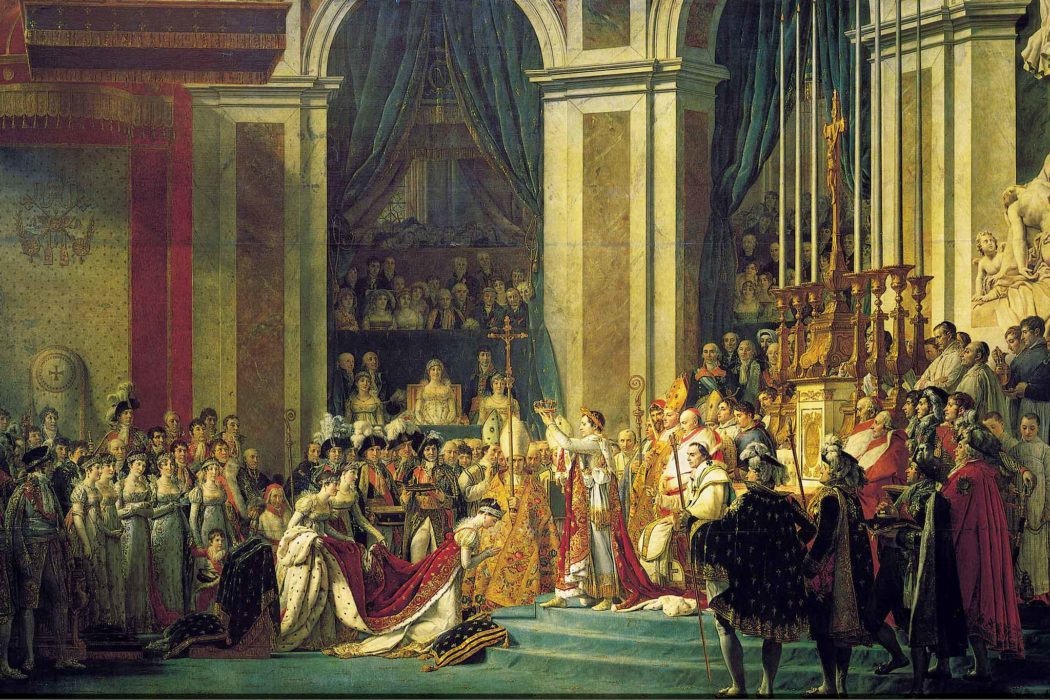“EVERYONE WISHES TO BE remembered,” ‘Abdu’l-Bahá said. It was Sunday, June 23, 1912, and the sound of church bells rang out in the distance. ‘Abdu’l-Bahá commented to those gathered at his residence in Montclair: “The church bells are pealing in memory of Jesus Christ although more than nineteen hundred years have passed since He lived upon the earth.”
‘Abdu’l-Bahá contrasted Christ with an example of an “earthly conqueror”: Napoleon Bonaparte. He recalled a moment when Napoleon, still a general for the French revolutionary government, was sailing back to France in 1799 after his Middle Eastern expedition. The fortress of ‘Akká, in Syria, had proven too difficult, and Napoleon had retreated to Egypt after a two-month siege. Then he learned that a revolution had broken out back home.
The revolutionaries in France had banned Christianity. The priests had fled; Napoleon decided to return. “The ship sailed out into a night brilliant with the light of the moon,” ‘Abdu’l-Bahá related. “Napoleon was pacing up and down the deck. His officers were sitting together, talking. One of them spoke of the similarity between Bonaparte and Christ. Napoleon stopped and said grimly, ‘Do you think I am going back to France to establish religion?’”
Napoleon overthrew the government, was elected First Consul, and became the most powerful man in France. Five years later, weary of democratic rule, he declared himself emperor.

Napoleon’s propagandist painter, Jacques-Louis David, captured his coronation on canvas. It took place in the Cathedral of Notre Dame in Paris on December 2, 1804. Pope Pius VII had stood near the church’s altar holding the imperial crown. But Napoleon had not knelt before him: instead he had taken the crown in his own hands and crowned himself. The massive painting — 32 feet wide and 20 feet tall — depicts the scene a few moments later as Napoleon prepares to crown Joséphine, his wife, as Empress. The emblems of Christianity surround them, including the crucified Christ, but Napoleon had usurped everything.
Napoleon’s dominion lasted just eleven years. He died a prisoner in permanent exile on the tiny island of Saint Helena in the South Atlantic.
‘Abdu’l-Bahá’s point: “Jesus Christ established the religion of God through love. His sovereignty is everlasting. Napoleon overthrew governments in war and bloodshed. His dominion passed away.”
The same thing happened to Napoleon’s nephew, Napoleon III. He, too, had carried out a coup in France, and he too went down to defeat, at the Battle of Sedan in 1870, which established the German Empire. Bahá’u’lláh had written to Napoleon III in 1868, and the king had laughed. “If this man is God,” he said, “I am two Gods!” Then he flung the letter to the floor.
“Hadst thou been sincere in thy words,” Bahá’u’lláh wrote back, “thou wouldst have not cast behind thy back the Book of God.” ‘Abdu’l-Bahá quoted the letter to those gathered in Montclair: “Thy kingdom shall be thrown into confusion, and thine empire shall pass from thine hands, as a punishment for that which thou hast wrought. Then wilt thou know how thou hast plainly erred. . . . Thy pomp shall soon pass away.”






